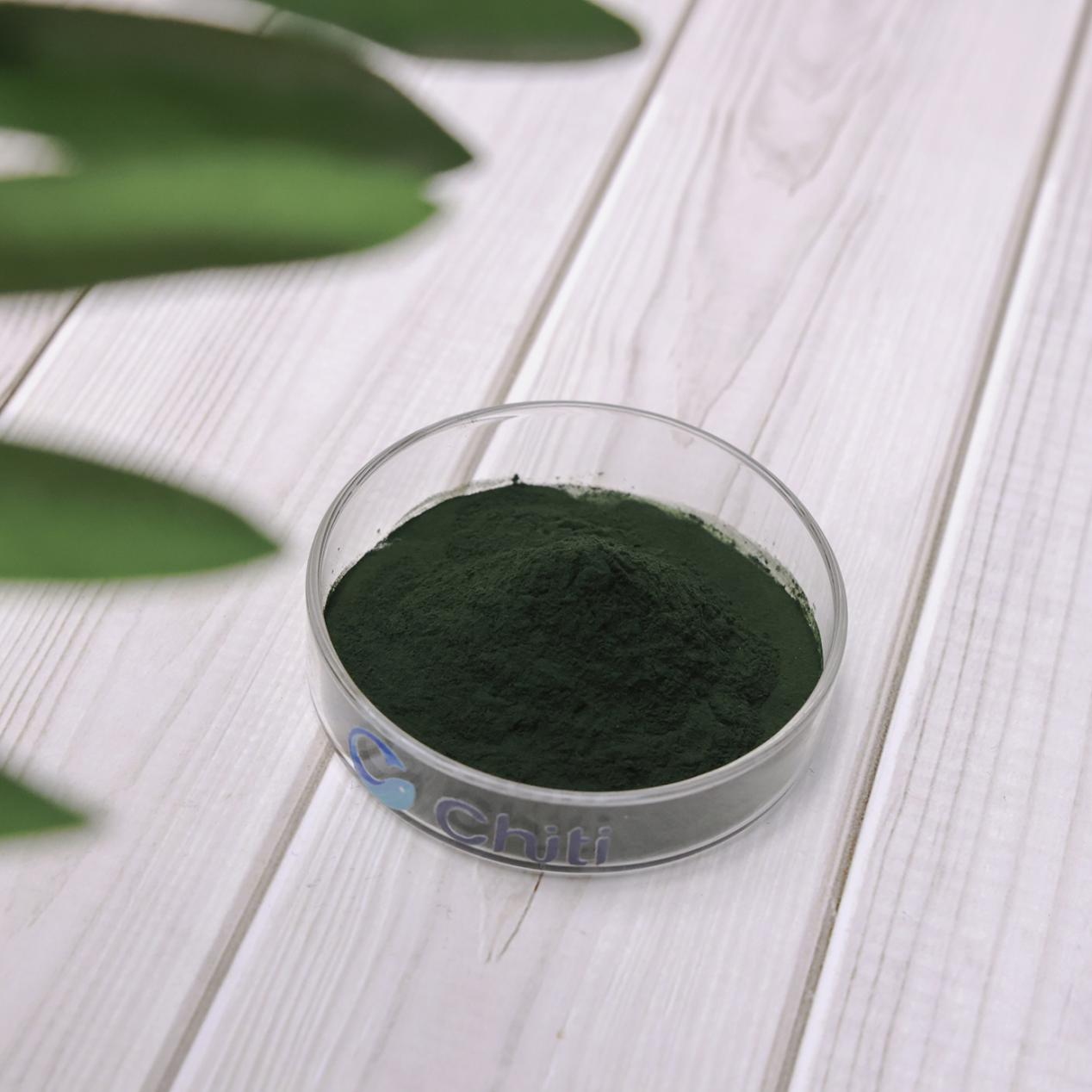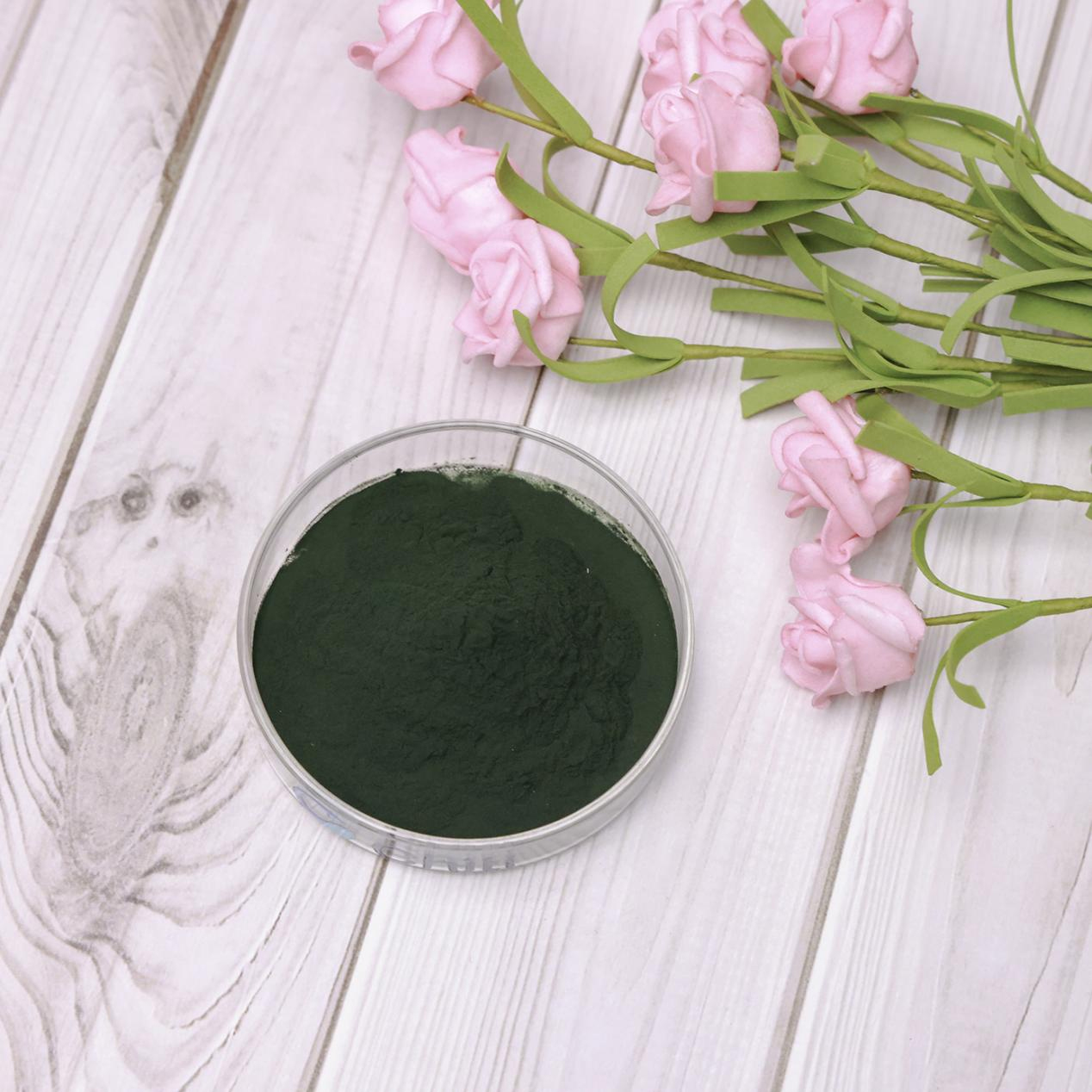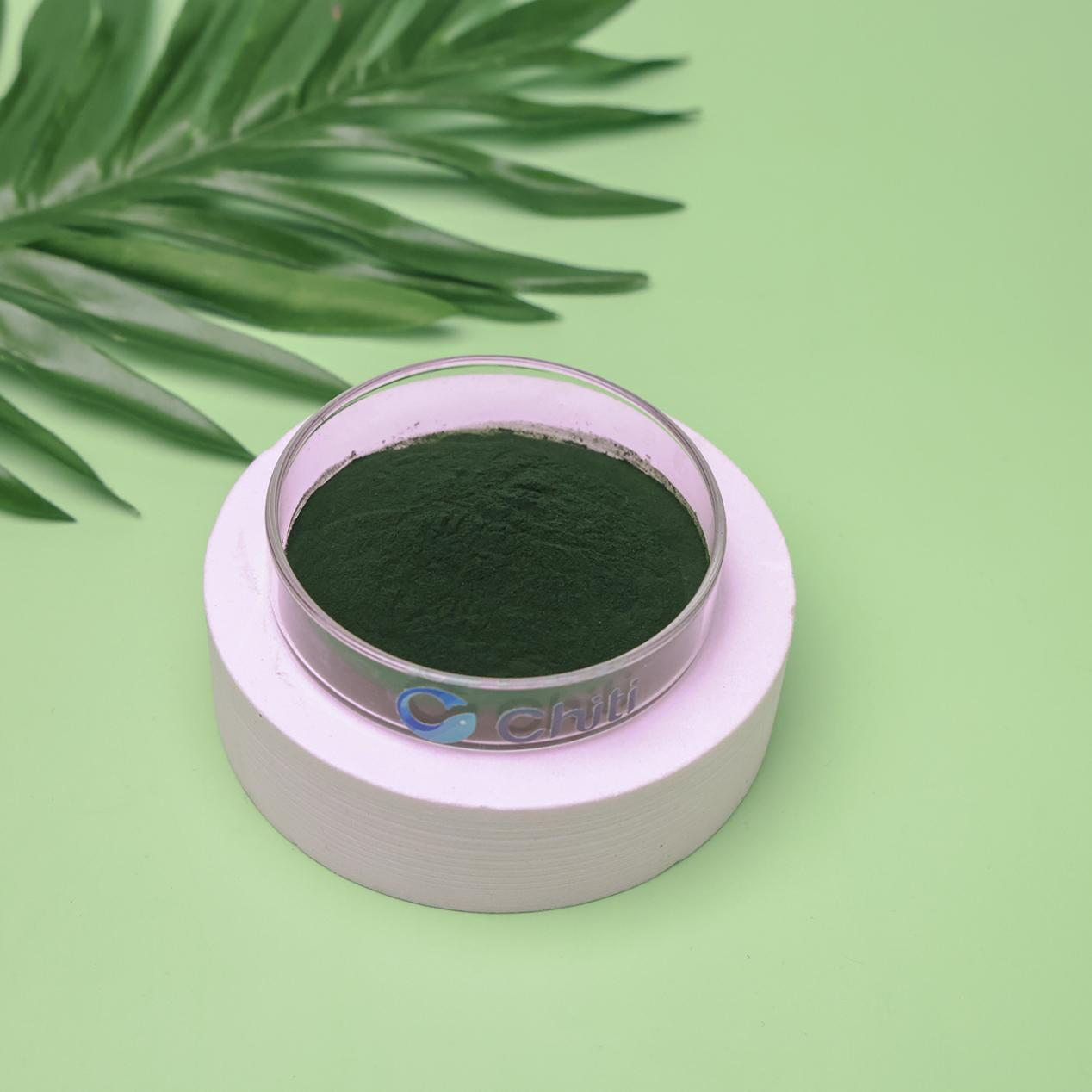Product introduction
In 1942, French pharmacologists found in Africa, although the local aborigines lived hard, but the body is very strong, which is from a kind of green floating, after the study of this substance contains rich nutrients, because of its spiral-like structure was named spirulina.
Spirulina is rich in protein, amino acids, polysaccharides, unsaturated fatty acids, carotene and other vitamins, minerals and trace elements. It is one of the most comprehensive and balanced foods known in the world, and even praised as "the most ideal food" by the Food Organization of the United Nations.
At present, there are four major lakes in the world where natural spirulina can grow: Chenghai Lake in Lijiang, Yunnan Province, China; Hamathetine Lake in Ordos; Lake Chad in Africa; and Lake Texcoco in Mexico.

Nutritional value
A large number of experimental data prove that 1G spirulina nutrient composition is equivalent to the sum of 1000g of various vegetables, and the content of protein in spirulina is 5 times that of soybean and egg, and 3 times that of fish.
At the same time, spirulina is rich in phycocyanin and algal polysaccharide, which can enhance human immunity and inhibit tumor cells. And the fresh algae in the superoxide dismutase, for the elimination of free radical peroxide in the human body has a strong about, coupled with high content of β-carotene and B vitamins, making spirulina is also anti-oxidation, anti-fatigue and anti-aging artifacts. In addition, spirulina rich in unsaturated fatty acids can also play a role in reducing human cholesterol and hyperlipidemia.

Product efficacy
1. Lower cholesterol
Y-linolenic acid in Spirulina can lower cholesterol, which is effective in reducing high blood pressure and preventing heart disease.
2. Regulate blood sugar
Spirulina contains spirulina polysaccharide, magnesium, chromium and other hypoglycemic substances, as well as high content of chlorophyll, B1, B2 and trace element zinc, which can promote the production of natural insulin, so it can slow down sugar absorption, promote substance metabolism and regulate blood glucose metabolism.
3. Boost your immunity
Both algal polysaccharide and phycocyanin in Spirulina can enhance the proliferation of bone marrow cells, promote the growth of immune organs such as thymus and spleen, and promote the biosynthesis of serum proteins.
4. Protect your stomach
The plant protein, chlorophyll and β-carotene in Spirulina are helpful to neutralize gastric acid and repair gastric mucosa. In addition, spirulina is an alkaline food, so it has obvious effect on the good improvement of intestinal environment.
5. Anti-tumor, anti-cancer and tumor suppressor
The algal polysaccharide, β-carotene and phycocyanin in Spirulina can promote the effect of anti-mutation and anticancer drugs, accelerate the repair of DNA, and have inhibitory effect on cancer cells.
6. Anti-oxidation, anti-aging and anti-fatigue
Superoxide dismutase (SOD) in fresh algae can catalyze disproportionation reaction to clear free radicals and reduce oxygen free radical damage caused by exercise by repairing and protecting cell structure.
7. Radiation resistance function
Spirulina has clear effect to radioactive pollution, on the one hand, because of spirulina is rich in a variety of biological active ingredients, can reduce the inhibition of radiation on the immune system, on the other hand is because the spirulina is rich in iron, vitamin B12 and green, also can promote hematopoietic function, can relieve and reduce the radiation to the inhibition of bone marrow hematopoietic function.
8. Treat anemia
Spirulina contains extremely rich in iron, vitamin B12 and chlorophyll, which is the main raw material of synthesis of hemoglobin, and spirulina algae blue alga of protein, can enhance the bone marrow of multiple dyed red blood cells and is dyed in the ratio of red blood cells, therefore spirulina can promote the synthesis of hemoglobin from several aspects and bone marrow hematopoietic function, play the role of anemia.
